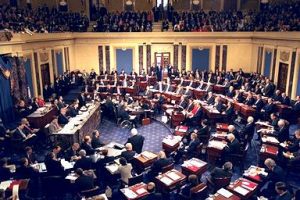Posted in Uncategorized

The goal of the bill is to discourage the theft of corporate trade secrets. If it can be shown such a theft occurred it would allow companies to go after the (alleged) thieves of confidential business information in federal court. The DTSA would amend the Economic Espionage Act of 1996 (EEA) to create a federal private right of action for trade secret theft. As it stands now the EEA only allows criminal law violations for trade secret theft and a civil lawsuit on the matter would have to be based on state law.
The bill as approved by the committee,
- Provides for injunctions, civil seizure orders and damages, and
- Changes the EEA’s definition of “trade secret” to align it with the definition contained in the Uniform Trade Secret Act which has been enacted by 47 states (including California).
The text of the latest version of the bill is available here.
After hearings in December several amendments were made, including,
- Seizure orders can only be issued in “extraordinary circumstances,”
- Proof of “actual or threatened misappropriation” must be shown before an injunction can be issued,
- Damages would be available for actual loss, unjust enrichment, reasonable royalties and exemplary damages (or punitive damages which are meant to punish wrong doing, not more than double the damages awarded),
- There may be an award of attorneys’ fees to the successful party if a misappropriation claim is brought in bad faith, a motion to end an injunction is made in bad faith or the trade secret lawsuit is willfully and maliciously prosecuted,
- Whistleblowers who disclose trade secrets to the government or in the context of retaliation lawsuits would be protected, and
- A three year statute of limitations would apply after the discovery of misappropriation or the time by which using reasonable diligence the misappropriation should have been discovered.
In a blog on the website The Hill Senators Orrin Hatch and Chris Coons state last year the Department of Justice brought only 15 criminal cases for trade secret theft. The bill would allow businesses to protect their trade secrets through a civil action in federal court.
“It also allows business owners to seek court orders to retrieve trade secrets before stolen information is shared with competitors. To ensure that companies do not use seizure authority for anticompetitive purposes, our legislation requires those seeking redress to make a rigorous showing that they owned the trade secret, that the trade secret was stolen, and that third parties would not be harmed if an ex parte order were granted.”
It is not known when the DTSA bill will be presented to the Senate for a floor vote.
If you believe your business has suffered the loss of trade secrets though there is currently no federal cause of action you may have legal rights under state law. Contact our office today so we can talk about the information at issue, what happened to it and how the law may apply.
